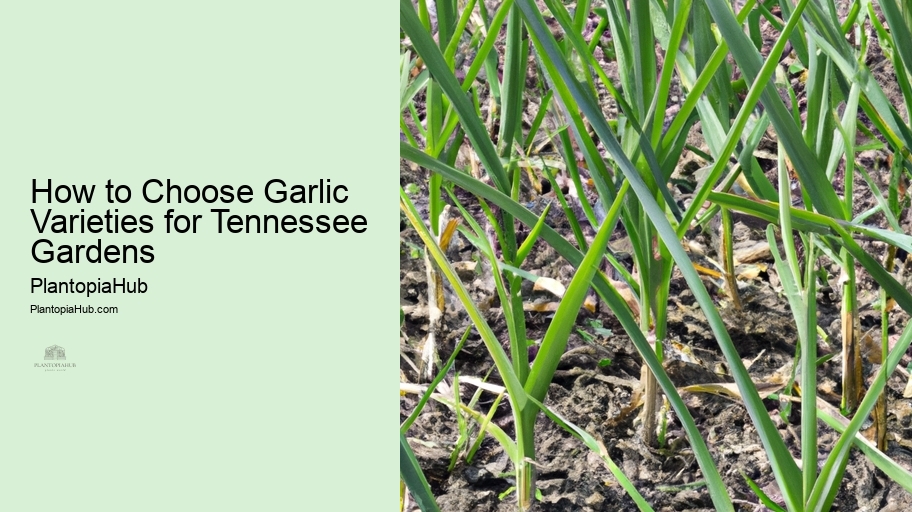

Staying updated with innovative technologies is crucial for modern garlic farming in Tennessee. Explore new tools and techniques like precision planting, automated irrigation systems, and data-driven analytics to optimize your garlic crop's performance.
Embrace digital solutions for record-keeping, pest monitoring, and crop management. These technologies can enhance efficiency and yield, contributing to the success of your garlic farm.
In conclusion, adopting innovative garlic cultivation technologies can give you a competitive edge in the evolving landscape of Tennessee agriculture.
Food Preservation Methods Garlic Planting Techniques for Tennessee's Climate .Garlic has a rich history in Tennessee's agricultural heritage. Soil Testing Services Explore the historical significance of garlic in the region, tracing its roots back to Native American cultivation and its integration into Southern cuisine.
Discover how garlic has evolved from a niche crop to a staple ingredient in Tennessee kitchens, reflecting changing culinary preferences and cultural influences.
In conclusion, understanding the role of garlic in Tennessee's agricultural history can deepen your appreciation for this versatile crop and its place in local culture.
Hosting garlic tasting events and farm tours can be a delightful way to connect with your community and showcase your Tennessee garlic farm.
Educate participants about the benefits of homegrown garlic and offer them a memorable, immersive experience. These events can also boost your farm's visibility and sales.
In conclusion, organizing garlic tasting events and farm tours adds a personal touch to your garlic farming business in Tennessee and fosters connections with garlic enthusiasts.
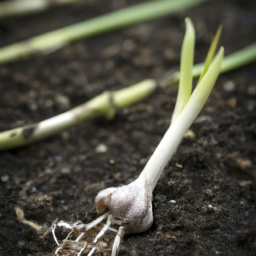
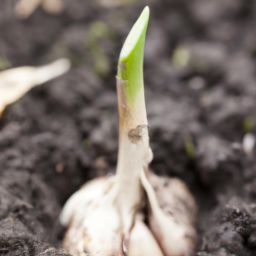
Garlic farming can contribute to a healthy ecosystem in Tennessee.
Biodiversity on your farm can help control pests naturally, reduce the need for chemical interventions, and promote soil health. Agroforestry and Garlic Production It's a sustainable approach that benefits both your garlic crop and the environment.
In conclusion, integrating biodiversity into your garlic farming practices can enhance the overall health of your Tennessee farm while minimizing ecological impact.
Homegrown garlic in Tennessee offers numerous nutritional advantages. Freshly harvested garlic retains its full flavor and nutritional value, containing essential vitamins, minerals, and antioxidants.
Consuming homegrown garlic can boost your immune system, improve heart health, and provide a rich source of vitamins like C and B6. Its culinary versatility makes it a valuable addition to any diet.
In conclusion, recognizing the nutritional benefits of homegrown garlic in Tennessee can encourage individuals to incorporate this healthy ingredient into their meals.
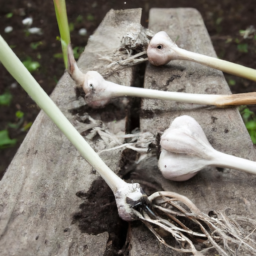
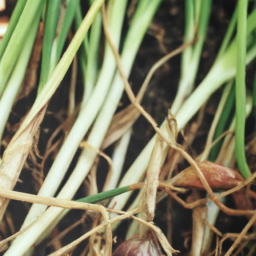
Organic garlic-based pesticides can be a valuable addition to your toolkit as a Tennessee farmer. Garlic contains natural compounds that repel pests and discourage fungal growth.
Using DIY garlic-based pesticides aligns with organic farming principles, promoting a healthy and pest-resistant garlic crop.
In conclusion, incorporating homemade garlic-based pesticides into your organic farming practices can help maintain a thriving and pest-free garlic crop in Tennessee.
Presentation is key when selling garlic at farmers' markets in Tennessee. Clean and trim your garlic bulbs for an attractive appearance.
Highlight the unique qualities of your garlic, such as its flavor, variety, and organic certification. Engage with customers and share your passion for garlic farming to build trust and loyalty.
In conclusion, effective presentation and engagement techniques can enhance your garlic sales at farmers' markets in Tennessee, attracting customers and boosting your brand.
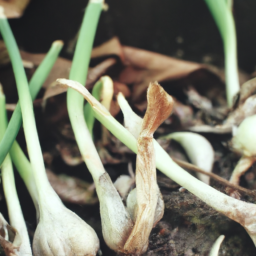
Organic garlic farming in Tennessee offers several benefits. It promotes soil health, reduces chemical inputs, and produces garlic that meets high organic standards, appealing to health-conscious consumers. Organic practices also contribute to environmental sustainability by minimizing the impact on ecosystems. Furthermore, the demand for organic garlic continues to grow, making it a profitable venture for farmers who embrace these practices.
The optimal time for planting garlic in Tennessee typically falls between late September and early November. It's important to consider your specific location within the state, as warmer regions may benefit from earlier planting in September, while cooler areas may choose a late October start. Monitoring local temperature trends and referring to the USDA hardiness zone map for Tennessee can help determine the best planting window.
Crop insurance is essential for garlic farmers in Tennessee because it provides financial protection against unforeseen events that can impact crop yields, such as adverse weather conditions or crop failures. By investing in crop insurance, garlic farmers can secure their income and minimize potential losses, ensuring financial stability and peace of mind during challenging seasons.